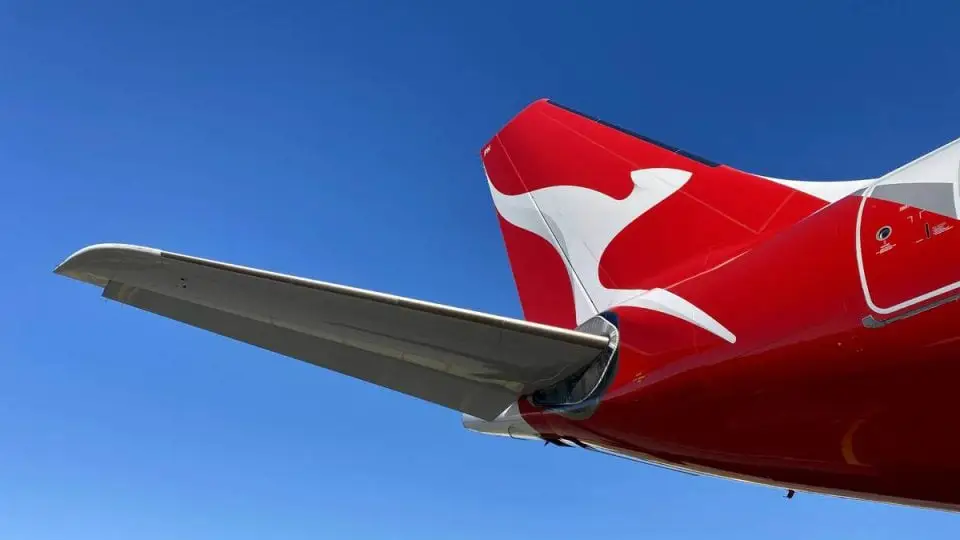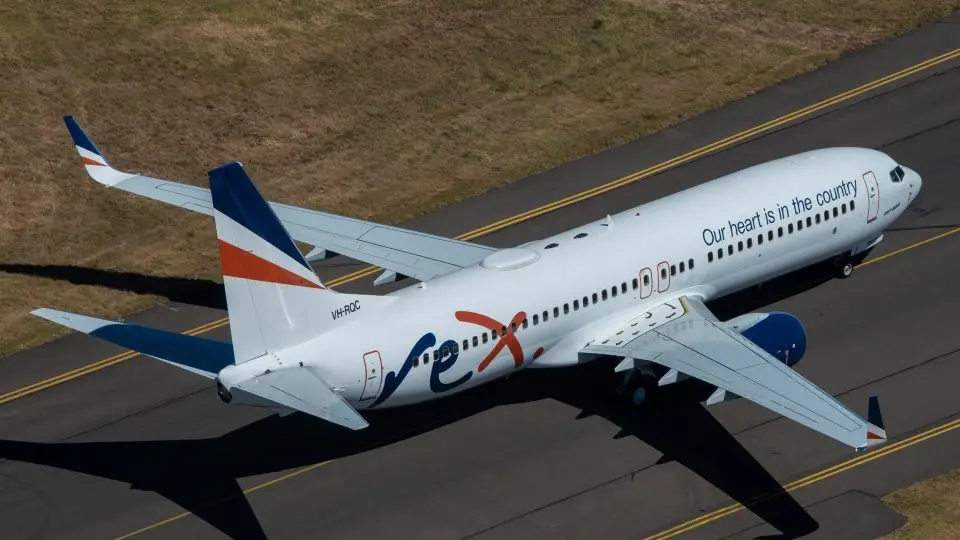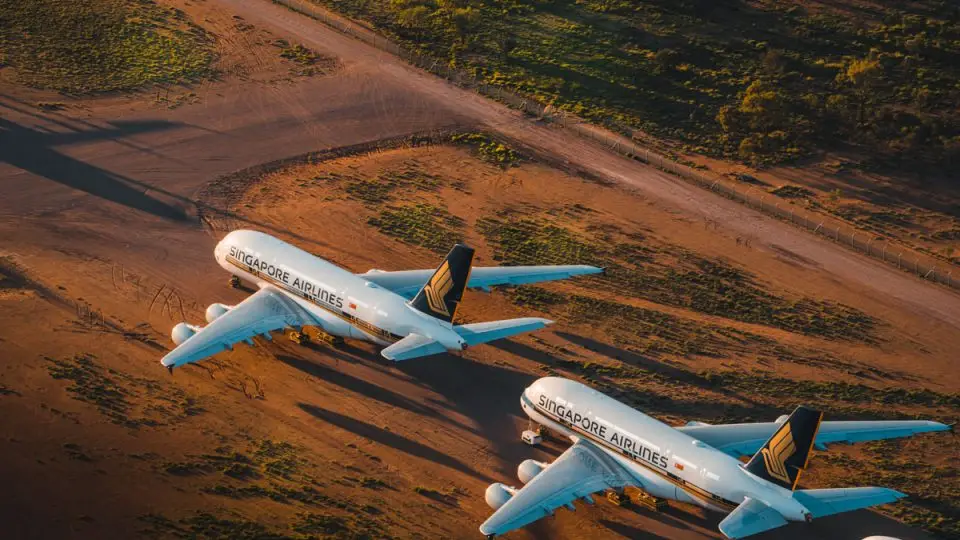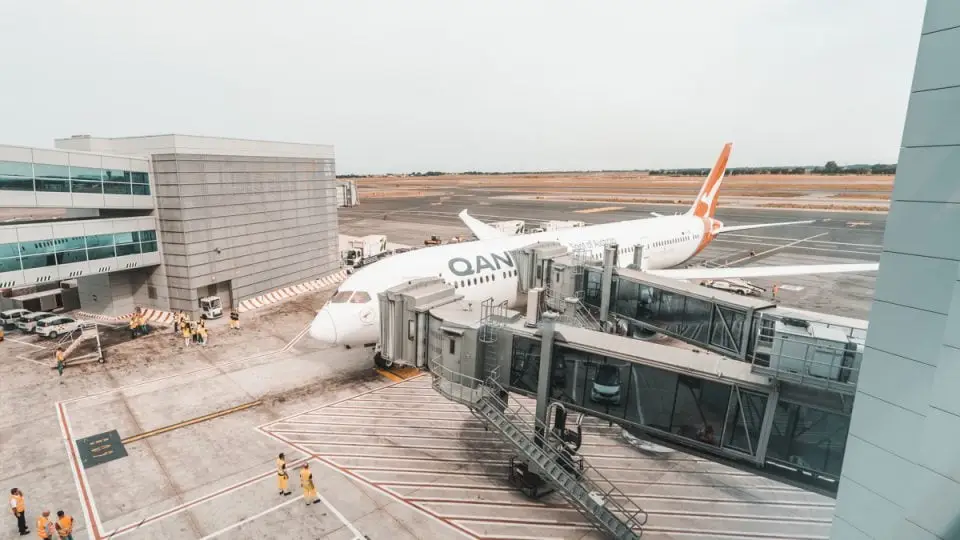Qantas Group Unveils Exciting Update To Long-Term Strategy
Qantas' bold long-term strategy focuses on fleet expansion, sustainability, and enhancing global connectivity for travellers.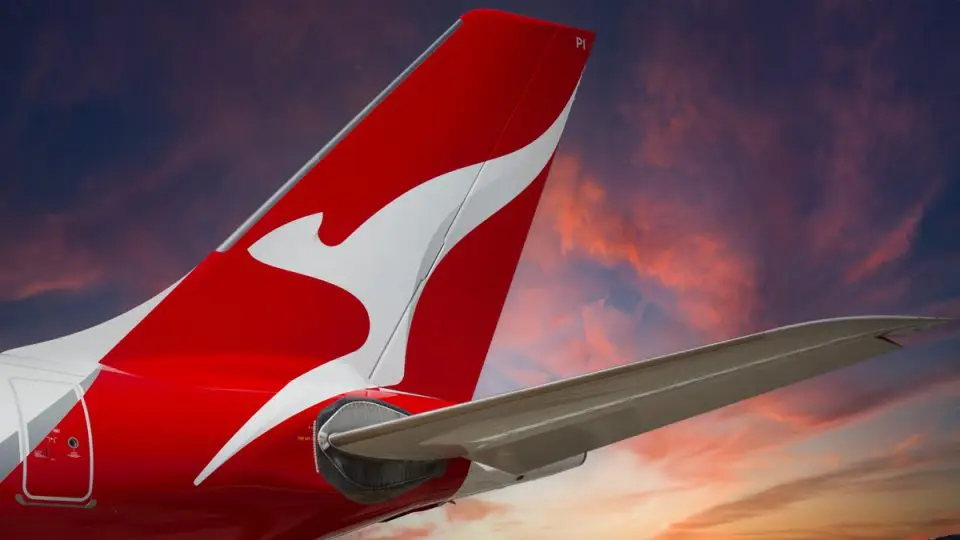
In a bid to adapt to the ever-evolving aviation industry and position itself for future success, the Qantas Group updated its long-term strategy. At its first Investor Strategy Day since the pandemic, Qantas Executives delivered a 98-page slideshow that detailed plans to enhance passenger experience and boost growth. With a renewed focus on sustainability, technology and its customers, The Qantas Group aims to solidify its position as “the airline customers trust the most”.
Qantas says their persistence has given way to a marked improvement in customer experience, especially over the last few months. An 18-per cent reduction in the mishandled baggage rate now sees six in every thousand Qantas bags becoming lost. Call centre wait times are reportedly down to an average of five minutes, with the national carrier adding that they are “a brand customers love to fly” with an all-inclusive and “superior product”.
Qantas Group CEO Alan Joyce said that new next-generation aircraft would transform The Group’s network over the next few years.
“We’ll be able to serve our customers better, reduce our cost base through lower running costs and carve out some new competitive advantages,” said Mr Joyce.
“Our revenue projections and track record for ongoing transformation show we can invest heavily in people and technology at the same time as generating strong returns for shareholders. That’s exactly the kind of national carrier we want to be.”
This strategic overhaul comes at a critical time as The Qantas Group starts to take a step in the right direction, following months of negative press and a series of deeply complex operational challenges.
Boarding Groups For Domestic Flights
From October 2023, Qantas will streamline its often chaotic boarding process by introducing up to five US-style boarding groups. The aim of the change is to improve on-time performance and to better recognise tiered Frequent Flyers, in response to customer feedback.
Qantas’ current domestic boarding process involves just two lines, a priority line for business class passengers and top-tier frequent flyers, with a second line for everyone else. This rarely works as intended, as cabin crew and gate staff are typically more clueless than the passengers gathered in one line.
A trial of the new process will see the aircraft divided into five zones, with passengers assigned to one of five groups. Premium boarding will still be offered first for anybody in business class, Chairman’s Lounge members and Platinum or Gold frequent flyers. The economy cabin is then divided into four sections with the idea of filling the middle of the plane before either end. How Qantas plans to run this with front-only boarding is yet to be announced.
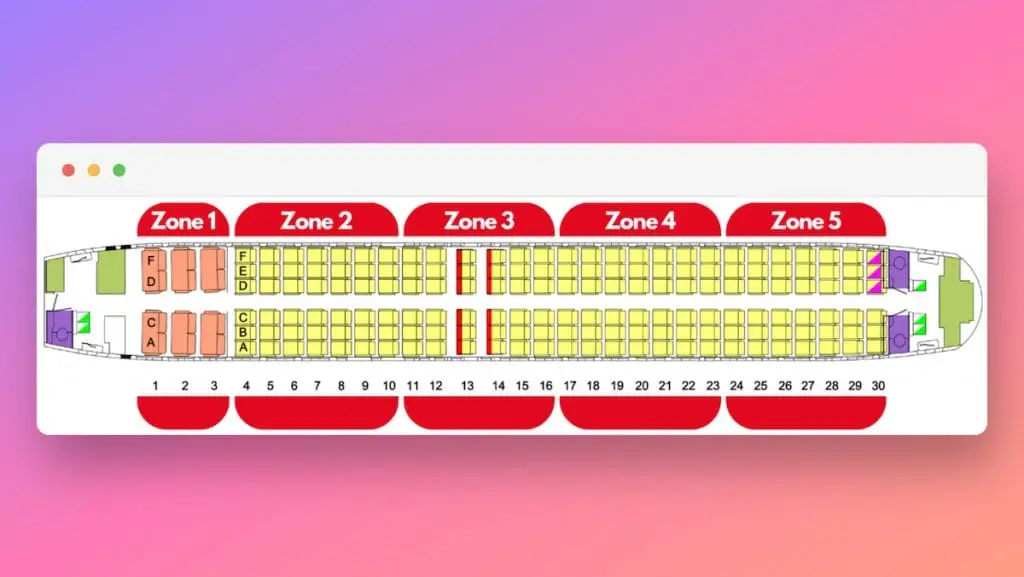
Tracking Alerts For Checked Baggage
Qantas passengers will soon be able to track the status of their checked luggage, keeping up to date at every stage of the flight. The tech is expected to roll out to the Qantas app towards the end of 2023, through which travellers would receive baggage notifications as their bag is accepted at check-in, loaded onto the aircraft and then offloaded at their destination.
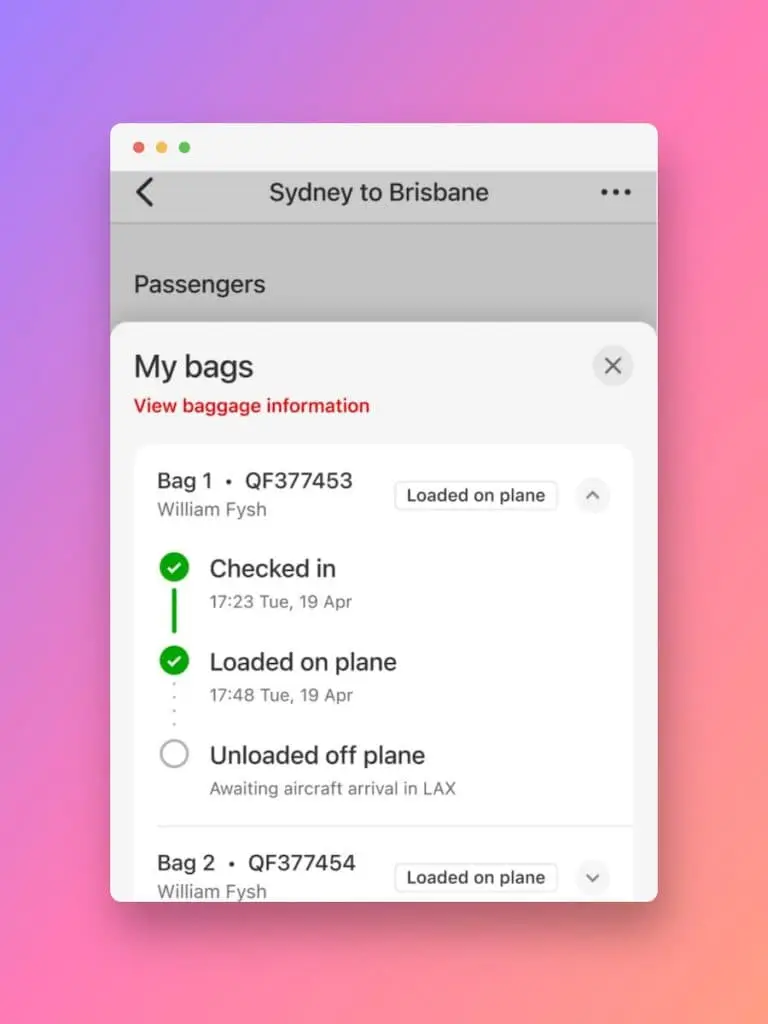
Focus On Reliable On-Time Performance
Qantas said they are the “most reliable major domestic airline” with the best on-time performance for “10 out of (the) last 11 months”. The airline mentioned that this data was drawn from Australia’s Bureau of Infrastructure and Transport Research Economics (BITRE), a body that publishes an on-time performance report of Australia’s domestic airlines every month.
While last month’s report does in fact reveal that Qantas flights arrived and departed with the best performance, it doesn’t mention that The Qantas Group also ranked as Australia’s most unreliable airline. In April, Qantas flights were cancelled on average 3.3% of the time, while a whopping 8.1% of Jetstar flights were cancelled. For reference, Virgin cancelled their flights 3.1% of the time, while Rex took the cake with just 2.8% of its flights being cancelled.
$100m Airport Lounge Network Refresh
Qantas is targeting a serious investment in its extensive worldwide airport lounge network, which includes 42 in Australia and 9 overseas. The plan represents a significant improvement in the pre-flight and transit experience for Qantas Frequent Flyers who will enjoy a new level of luxury at selected destinations. This investment in lounges comes in addition to previously announced upgrades. So far, we know the following spaces can expect attention;
- Refreshed Hong Kong International Lounge (now open)
- New Rockhampton Regional Lounge (now open)
- New Auckland International Lounge (2023)
- Refreshed Adelaide Domestic Qantas Club (2023)
- New Adelaide Domestic Business Lounge (2024)
- Refreshed Port Hedland Regional Lounge (2024)
- New Broome Regional Lounge (2024)
- Refreshed Melbourne International Business Lounge (2024)
- Refreshed Sydney International Business Lounge (2025)
- Refreshed Adelaide Domestic Chairmans Lounge (2025)
- New London First Class Lounge (2025)
- Refreshed Hobart Qantas Club (no date)

$400m Climate Fund Established
Qantas will establish a $400 million climate fund to accelerate its progress towards sustainability targets. It’s the largest of its type for any airline, with a focus on stimulating;
- Production of Sustainable Aviation Fuel (SAF)
- Offsets that deliver dividends for carbon removal
- Technologies that work towards efficiency and waste reduction targets
The airline says they are committed to achieving net-zero emissions by 2050, aligning with the goals of the Paris Agreement. Qantas is also calling for the Australian Government to introduce a SAF blending mandate, similar to steps taken in other jurisdictions including the UK, Europe, the US and Japan to help kickstart local production.
Delivering Employee Bonuses And Training
The Qantas Group has revived its commitment to sharing the benefits of recovery with its employees. In addition to ongoing improvements to staff travel benefits, the airline says they will deliver bonuses of approximately $11,500 in the 2023-2024 financial year. Qantas also plans to create up to 8,500 operational roles in Australia by 2033, to support fleet growth and additional flying.
Around two million training hours have been delivered this year alone, unlocking pathways through initiatives like the Pilot Academy and Engineering Academy. As the industry recovers, Qantas also touched on their customer satisfaction with Cabin Crew supposedly returning to pre-pandemic norms.
Related posts




